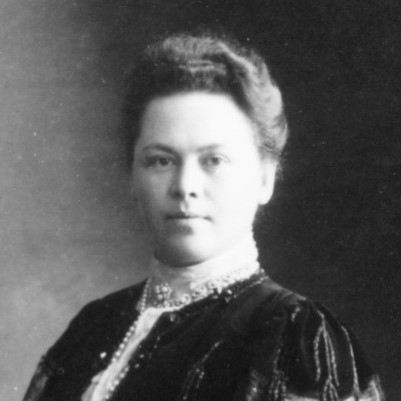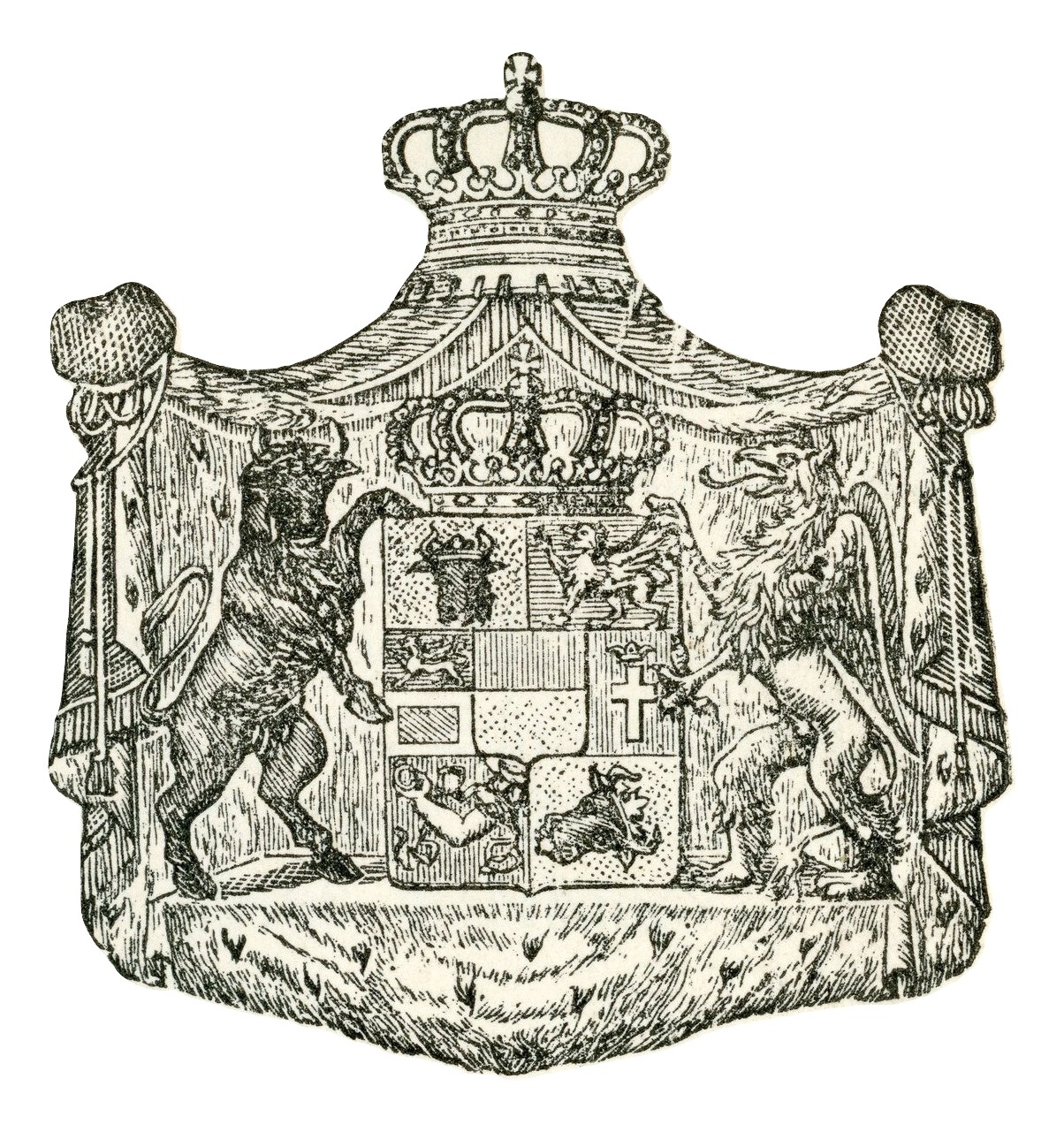
Natalia Feodorovna Vanljarskaya was born on 16 May 1858 in St Petersburg. She was the daughter of Feodor Ardalionovich Vanljarskay and his wife Maria Feodorovna Vanljarskaya.
Early years
Christened into the Russian Orthodox Church, Natalia grew up partly in the Penza province of Russia where her father was a landowner, and in St Petersburg where her father’s regiment the Preobrazhensky Life Guards Regiment were headquartered. Through her father Natalia was a member of the Vanljarskay family, who belong to the old untitled Russian nobility, while her mother belonged to another distinguished noble family, the Uvarov’s.
In 1866 following Natalia’s father’s retirement from the army the family took up permanent residence in St Petersburg where he took on the role of a Privy Councillor in the Ministry of Finance. Following the early death of her mother in 1872 the 13 year old Natalia started to assist her paternal grandmother in running the family household and caring for her younger sisters Sofya born 1867, Marianna born 1868 and Ekaterina, born 1870.
Growing up Natalia would develop a love of music through the influence of her father who was a friend of the famous Russian composers Modest Petrovich Mussorgsky, who he served alongside in the Preobrazhensky Life Guards, and Aleskander Sergeyevich Dargomyzhsky.
In 1884 Natalia entered service as a maid of honour to Duchess Ekaterina and soon became involved with the charitable organisations she supported. During the winter months Natalia could continue living with her father in St Petersburg while Duchess Ekaterina spent the season at her Mikhailovsky Palace residence. The summer months were spent with Duchess Ekaterina at the Oranienbaum Palace with Natalia’s whole family often invited to join them. Natalia’s younger sister Sofya would later follow in her footsteps and herself go on to become a maid of honour to the Russian Empress.
Marriage
While maid of honour a shared passion for music saw Natalia become close to Duchess Ekaterina’s music loving elder son Duke Georg Alexander. The couple fell in love and desired to marry; Duchess Ekaterina however was opposed to the marriage and dismissed Natalia from her role.
With the couple deeply in love and well matched Duchess Ekaterina’s opposition faded and consent for a marriage was also given by Duke Georg Alexander’s uncle and head of the family Grand Duke Friedrich Wilhelm. As Natalia was fiercely proud of her Russian identity and did not wish to give up her citizenship, and with Duke Georg Alexander being firmly established in Russia, the couple did not seek official dynastic consent for their marriage which would have seen Natalia share her future husband’s rank and title.
The wedding of Natalia and Duke Georg Alexander took place on 14 February 1890 at the private chapel of the Mikhailovsky Palace. Apart from the couple’s immediate family the wedding was attended by Emperor Aleksandr III and Empress Maria Feodorovna of Russia and other members of the Russian Imperial Family.
Countess of Carlow
Because the marriage of Natalia and Duke Georg Alexander was not a dynastic marriage, in order to compensate for this on 18 March 1890 Grand Duke Friedrich Wilhelm bestowed the hereditary title Countess of Carlow upon Natalia. The title which came from the town of Carlow in Ratzeburg by coincidence sounded similar to Duke Georg Alexander’s family estate in the Poltava Province named Karlovka.
After the wedding Countess Natalia’s one time places of work now became her homes with the Mikhailovsky Palace remaining the winter residence and the Oranienbaum Palace the summer residence. After the death of her mother in law Duchess Ekaterina in 1894 the Mikhailovsky Palace was sold and Duke Georg Alexander acquired a river embankment mansion at 46 Fontanka in St Petersburg as the new family home. As a music loving couple the home of Countess Natalia and her husband became to be regarded as an important musical centre in St Petersburg and she supported her husband’s ambition to establish his own string quartet.
In the years following their marriage Natalia and her husband Duke Georg Alexander had four children together, Catherine, born 1891, Marie, born 1893, Natalia, born 1894, and Georg, born 1899. Due to the non dynastic nature of Natalia’s marriage all the children bore her title.
After her marriage Countess Natalia became heavily involved with the charities supported by her husband’s family particularly in the communities around their residences such as Oranienbaum. On a national level during the Russian-Japanese war of 1904-1905 Countess Natalia served as assistant to the chairwoman of the Port Arthur Committee, Duchess Eugenia Maximilianovna of Oldenburg, which had established in January 1905 to support the victims of the Russian Navy’s defeat at Port Arthur and the families of deceased sailors. As Duchess Eugenia was often out of the country for medical treatment Countess Natalia took on the role of directing the committees work. For her efforts with the committee she was awarded the Order of St Catherine by Emperor Nikolai II.
Widowhood
Countess Natalia became a widow in December 1909 following the sudden death of her husband Duke Georg Alexander. She was supported through this by her in laws with Duke Carl Michael also being appointed the guardian of her four children. Through her widowhood Countess Natalia also maintained contact with her husband’s relatives in Mecklenburg and along with her son Count Georg joined the Grand Ducal Family at the small mourning ceremony in Berlin held days after the death of her husband’s cousin Grand Duke Adolf Friedrich V in June 1914.
Not long after the death of Grand Duke Adolf Friedrich V the Russian and German based branches of the Grand Ducal Family were separated by the First World War. Countess Natalia again actively supported charitable causes during the conflict serving on a number of committees and overseeing work to send hundreds of parcels of warm clothes, books and gifts to the army and hospitals.
The First World War brought great internal trouble to the Russian Empire resulting in the February 1917 revolution which saw the abdication of Emperor Nikolai II. This was followed by a further revolution in October which saw the coming to power of the Bolsheviks’ and outbreak of a civil war. For their safety and with their property soon being expropriated Countess Natalia and her family had to flee from St Petersburg heading to Kislovodsk in the Caucasus region of Russia.
With her dedication to charity she was chosen to head a ‘Women’s Committee’ in Kislovodsk which was tasked with sowing clothes and providing gifts to the least fortunate refugees living there. Gradually however with anti-Bolshevik White Army being pushed back the civil war caught up with Countess Natalia who was badly beaten with the rifle butts of soldiers of the Bolshevik Red Army. Countess Natalia finally left Russia in 1919.
Exile
After leaving Russia Countess Natalia spent time in the South of France with her daughter Marie and son Georg and in London where her other daughter Catherine and her family had set up home. In exile she continued to dedicate herself to charity being active in Red Cross initiatives.
Countess Natalia of Carlow died in Cannes on 14 March 1921 at the age of 62. She was buried there in the Grand Jas Cemetery.
Honours
- Smaller Cross of the Order of St Catherine, Russian Empire (2 April 1906)
